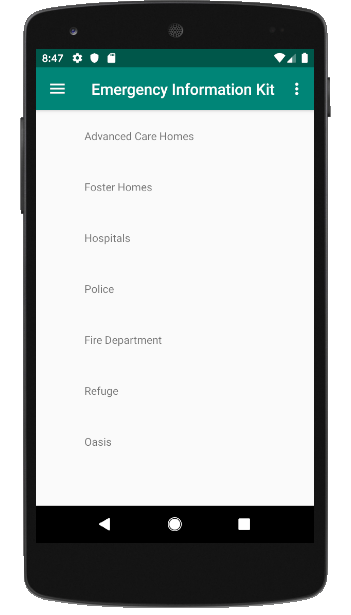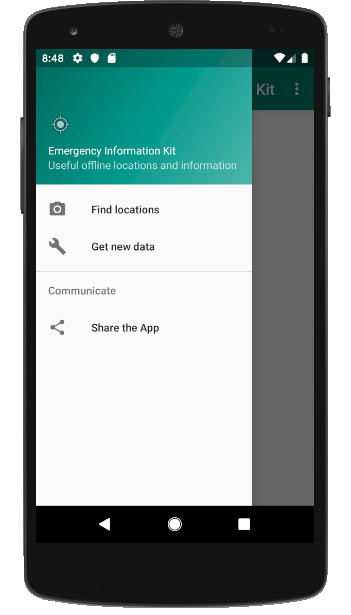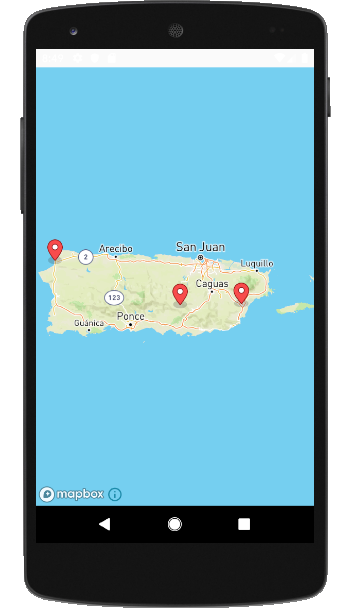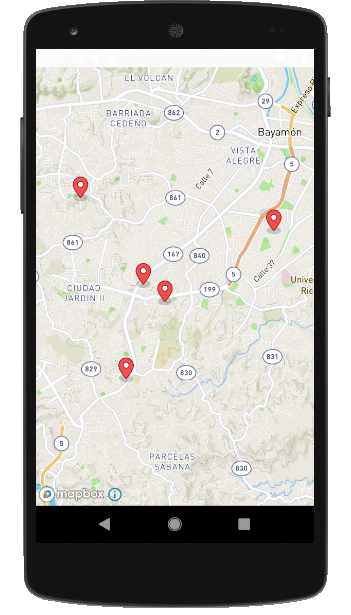Call for Code 2019 - Imaginary Report (July 2019) - Imaginary Tech
Call for Code 2019 – Imaginary Report (July 2019)
Saturday, July 27, 2019
As one of our larger client projects is nearing its final stages, we’ve been more busy than usual and the monthly update got delayed a couple days. Here’s some of what’s occurred at Imaginary Sense this month.
Call for Code 2019
Over the weekend of July 5 and July 7, va2ron1, and I participated individually at the Call for Code Puerto Rico hackathon. This competition is for people to come up with solutions they can submit for the Call for Code 2019 Global Challenge, an international hackathon that aims towards developing the best technology solution for reducing the impact of natural disasters.
ELK – Emergency Locations Kit
The solution I worked on is called “ELK – Emergency Locations Kit” (sometimes referred to as “EIK – Emergency Information Kit” from an aspirational perspective). ELK is a mobile application that’s meant to provide useful GPS location information during an Emergency where you don’t have Internet access. The app is native so its footprint is small and information can be distributed through emergency mesh networks with hotspots, such as Project Owl. My goal ELK is to support multiple data channels so it can be used to safely distribute publicly and privately known location information for various institutions to use.
Imaginary Sense COO, Kevin Ponce, and va2ron1 helped me get the project done. The idea was inspired by:
- “El Conteo“, an episode of Radio Ambulante on what does really counts as a death from hurricane Maria:
http://radioambulante.org/audio/el-conteo - UtoPi, our last year’s project for the CfC
- Project Owl, last year’s CfC winner
- A visit from my grandpa to Engine-4, which sparked the idea into my head
Source Code
- https://github.com/ImaginarySenseHackathons/EIK-Android-Frontend
- https://github.com/ImaginarySenseHackathons/EIK-Emergency-Backend
DATAR
va2ron1’s presented solution uses IBM Watson’s Machine Learning to search for relevant text on a stream of information and is meant to be used to de-congest and make sense of antenna traffic in emergency situations. More about this project in next month’s entry.
Source Code
- https://github.com/va2ron1/datar-api
- https://github.com/va2ron1/datar-management
- https://github.com/va2ron1/datar-web-demo
- https://github.com/va2ron1/datar-ios-demo
- https://github.com/va2ron1/datar-sms-demo
Resolution
Presenting ELK, I received the one thing I was looking for the most: Validation. The project won the second prize and I’m looking forward to further developing this in the midterm future. I’ve gifted all my prizes away and made a difficult choice: not to participate on this year’s IBM Call for Code. The reason behind this is I needed my extra time to work on a project Cine Caretas Inc, a non-profit I’ve collaborated with for many years, will be launching next month.
va2ron1 on the other hand will be submitting DATAR to the IBM Call for Code 2019 challenge, and I’m eager to see how far he takes it.
Engine-4’s Sewers Project
Engine-4 intern, Nicolas Mignucci, has continued to bring this project forward by working on the third prototype, which is a different invention from the previous prototypes altogether. The third prototype is meant to detect a river’s water level with computer vision. Mignucci and I have also made improvements to the source code of the second prototype. Unfortunately, experiments have been delayed due to equipment getting damaged.
Imaginary Teleprompter Update
At this particular moment Teleprompter development has stalled again given both va2ron1 and I develop this software in our spare time and both have been keeping busy lately with the CfC and two other projects. We’ll be disclosing more information about these projects in the upcoming months. In the meantime, rest assured development will resume, since va2ron1 and I both care a lot about Teleprompter. I’m not going to say how much, cause then we’d into a competition slash discussion, and we dont have time for that!
« Engine-4’s Sewer Project, Imaginary Report (June 2019)Early Access Portals – Imaginary Report (Aug-Sept, 2019) »


